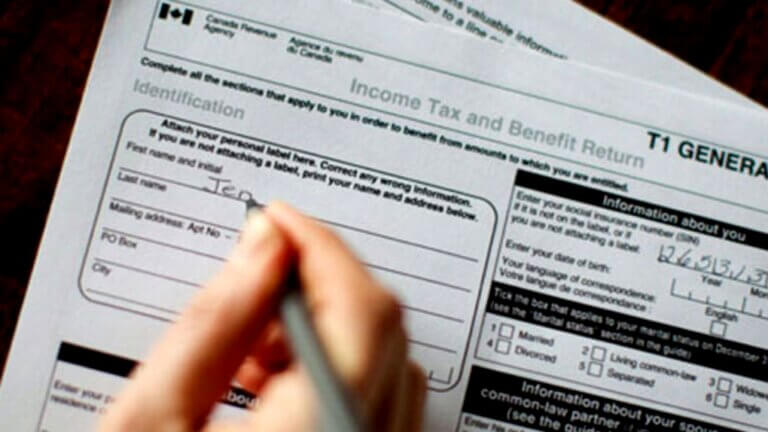Claiming Dental Expense Tax Credit On Your Canadian Tax Return
Updated March 16, 2025

Did you know you can reduce your tax burden by claiming dental expenses on your T1 Personal Tax Return in Canada? If you’re paying out-of-pocket for dental care, you may be eligible for a tax credit that can help offset those costs. Here’s an in-depth guide to making the most of your dental expenditures when filing your taxes in Canada:
- What Dental Expenses Are Eligible for Tax Claims?
- How to Calculate Your Dental Tax Credit
- Strategies to Maximize Your Tax Savings
- Conclusion
If you have any further questions regarding dental insurance, payment options, or if you require assistance with the claims process or want to know more about the dental services offered at Atlas Dental, please contact us.
What Dental Expenses Are Eligible for Tax Claims?
The Canada Revenue Agency (CRA) allows you to claim a variety of out-of-pocket dental expenses that insurance doesn’t cover. Since most group insurance plans don’t cover 100% of dental costs, claiming these eligible expenses on your tax return can result in significant savings. Eligible dental expenses generally include:
- Dental services: Paid to a licensed dentist or medical practitioner. However, purely cosmetic procedures like veneers and teeth whitening are excluded.
- Dentures and dental implants: These qualify without the need for certification or a prescription.
- Orthodontic treatments: This includes braces and Invisalign, provided they are medically necessary and performed by a licensed professional.
- Premiums for private health insurance: If 90% or more of the premiums are for eligible medical expenses, you can claim them.
For a full list of eligible dental expenses, consult the CRA’s Eligible Medical Expenses List.
How to Calculate Your Dental Tax Credit
You can claim out-of-pocket dental expenses for yourself, your spouse, and dependents. The amount you can claim is determined using this formula:
- Total out-of-pocket medical expenses minus the lesser of:
- 3% of your personal net income, or
- $2,635 (for 2024; this amount may change annually).
These expenses can be claimed on your T1 Personal Tax Return under one of the following:
- Line 33099: Medical expenses for yourself, your spouse, or children under 18.
- Line 33199: Medical expenses for other dependants, such as adult children, parents, or grandparents.
Strategies to Maximize Your Tax Savings
Spousal Income Thresholds
To get the most benefit from this tax credit, the spouse with the lower income should claim the medical expenses. Here’s an example:
- Ben earns $90,000, and Jenny earns $65,000. Their combined out-of-pocket dental expenses are $4,500.
- If Ben claims the expenses, his deduction would be reduced by $2,635 (3% of his income).
- If Jenny claims the expenses, her deduction would be reduced by only $1,350 (3% of her income).
In this case, Jenny should claim the expenses to get a larger tax benefit.
Claiming Period
You can choose any 12-month period ending in the current tax year to claim dental expenses. For example, if you had substantial dental work done in December 2024 and February 2025, you can select December 2024 to November 2025 as your claim period, capturing both expenses.
Keep Your Dental-Related Receipts And Invoices
To ensure you claim every eligible expense, maintain a detailed record of all your dental-related receipts and invoices. If the CRA audits your tax return, having these on hand will make the process smoother.
Seek Professional Tax Advice
The Canadian tax system can be complex, especially when it comes to medical and dental expense claims. To avoid mistakes and ensure you’re claiming the maximum benefit, consider seeking advice from a tax professional or accountant. They can provide personalized strategies based on your unique financial situation.
Conclusion
Claiming dental expenses can result in valuable tax savings, especially if you optimize your claims based on income and choose the right 12-month period. However, navigating tax laws can be tricky, so consulting with a professional can help you avoid costly errors.
If you have further questions about dental insurance, payment options, or the dental services offered at Atlas Dental, feel free to contact us.
Remember, while claiming dental expenses can lead to tax savings, consulting with a professional ensures accuracy and compliance with current tax regulations. If you have any further questions regarding dental insurance, payment options, or if you require assistance with the claims process or want to know more about the dental services offered at Atlas Dental, please contact us.

About the Author
Alice Choi CPA, CA, CFP: Alice Choi is a financial expert specializing in tax strategy. As a Certified Public Accountant, Chartered Accountant, and Certified Financial Planner, Alice has extensive experience helping individuals maximize their tax savings.

